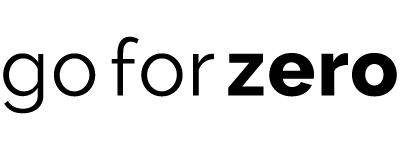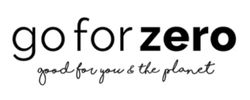Your Cart is Empty
**FREE (PLASTIC-FREE) SHIPPING OVER $89 IN AU | $9.95 FOR AU ORDERS BELOW $89**
Menu
-
- BRANDS
- New
-
A - F
- Aleph Beauty
- Amavasya Healing Store
- Baby Quoddle
- Banksia Pods
- Bare and Boho
- Bear & Kind
- Bearded Chap
- Beauty and the Bees
- BioTuff
- Brightberry
- Buchi Brew Co
- Byron Bay Detox
- Chubby Bee
- Coconut Bowls
- Core Skincare
- Desert Shadow
- Downunder Wash Co
- Earth Greetings
- Eco Coconut
- Eco Art & Crafts
- Eco Max
- Eco Modern Essentials
- Eco Toothbrush
- Ecyo
- Eden Health Foods
- Ethique
- Ever Circle
- Ever Eco
- E.sup
- Femme Organic
-
G - N
- Gentle Habits
- Go for Zero
- Goodeau
- Good Change Store
- Good Cuppa
- Green Grip
- Haakaa
- Here and After
- Honeybee Wraps
- Honeysticks
- Ilo Wellness
- IME
- Jack n' Jill
- Kayu & Co
- Kelpy Bone
- Kiin Baby
- Kooshoo
- Laminated Cotton Shop
- Left-handesign
- Love Beauty Foods
- Magic Earth
- Mika Creations
- Miod
- My Mimi
- Natural Rubber Soother
- No Nasties
- Noosa Basics
- Notely
- Nuebar
- Nutra Organics
- Nurtur Tea
-
O - S
- One Chew Three
- Paper Saver
- Patch
- Planet Revive
- Pleasant State
- Pod Star
- Poppy and Daisy Designs
- Raw Medicine
- Resparkle
- Retro Kitchen
- Rosie Lou
- Rustic Peppermint
- Salty Aura
- Saver Sleeve
- Scoop Whole Beauty
- SealPod
- Shampoo with a Purpose
- Sileco
- Solid Oral Care
- Sow n Sow
- StokedNZ
- Strap
- Stray Willow
- Sunbutter
- Surfmud
-
T - Z
- Tappwater
- That Red House Soapberries
- The Australian Natural Soap Company
- The Fabric Comb
- The Glitter Tribe
- The Loose Tea Company
- The Naturool Co
- The Physic Garden
- The Swag
- The Tooth Faerie
- Thrive Tallow
- Togo Sun
- TOMbag
- TOM Organics
- Tooletries
- Urban Composter
- Urban Greens
- Urthly Organics
- Veggie Saver
- Viva La Body
- We Might Be Tiny
- Winki Zinc
- Woohoo
- Wotnot
- ZeroCare
- Zone Yoga
- 15% off Buy Once, Reuse For Years
- SUBSCRIBE & SAVE
- SKINCARE & MAKEUP
- BATHROOM
- HOME
- FAMILY
- Zero Waste packs & Gifting
- SALE
- BLOG
- ABOUT US
-
- Login / Subscribe
-
Australia (AUD $)

**FREE (PLASTIC-FREE) SHIPPING OVER $89 IN AU | $9.95 FOR AU ORDERS BELOW $89**

Is BPA-free safe? A story about an Australian mum disrupting the baby bottle industry
May 10, 2024 3 min read
Welcome back, legends! Let's deep dive into the amazing story of a BPA-free pioneer, learn what BPA-free means and look at some safe alternatives.
You're probably already looking for "BPA-Free" lunch boxes, baby bottles, and water bottles, however ”BPA-Free" doesn't necessarily mean safe. Research shows that BPA-free plastic often uses substitutes just as harmful as BPA.
Yikes! Let's dive in and and get to the good news too.
What is BPA, and what is the Issue with BPA
BPA is used to manufacture many plastics, such as food and beverage containers, plastic dinnerware, thermal paper (receipts), toys, drink bottles, medical devices and various dental materials. The 2003-2004 National Health and Nutrition Examination Survey (NHANES III), conducted by the Centre for Disease Control and Prevention (CDC), found detectable levels of BPA in 93% of 2517 urine samples from people six years of age and older. One of the concerning issues is that BPA accumulates in our human tissue and organs. In July 2012, the FDA finally amended its regulations to "no longer provide for using BPA-based polycarbonate resins in baby bottles and sippy cups”, which is why you now only find BPA-free baby bottles. That was a huuuuge step forward, but what about the other products we daily use?
So, what about BPA-free? Does that mean it is safe?
With the raising concern about BPA, many brands proudly promoted they are now BPA-free. Other chemicals like bisphenol S (BPS) and bisphenol F (BPF) are being used as an alternative to BPA, however recent studies show that BPS is as destructive as BPA in promoting certain types of breast cancer and even more harmful to the reproductive system.
A study published in the journal Environmental Health Perspectives tested over 450 plastic products, including many labelled as BPA-free, and found that nearly all of them leached chemicals with oestrogenic activity. This finding suggests that simply replacing BPA with other chemicals is not sufficient to eliminate the potential health risks associated with plastic food containers, drink bottles, etc.
With Mother's Day around the corner, we wanted to spotlight an amazing mother who has impacted the health of many babies, not just her own.

Meet Quoddle, Australia’s first plastic-free baby bottle
In 2013, Kimmi, founder of Baby Quoddle prepared to welcome their newest addition, Abel, to their family. Her quest began with a simple desire to find afeeding bottle free from plastics and harmful chemicals. To her surprise, there were no options available on the market at that time that met those standards. Determined to make a change, she set out to design her own bottle.
After months of research and collaboration, the Baby Quoddle glass baby bottle was born. Crafted from premium materials like brasiliensis hevea rubber and borosilicate hand-blown glass, Quoddle bottles are free from harmful substances like BPA & BPS. This bottle redefines safety and quality in baby feeding.
Kimmie is a legend in our eyes. She was a pioneer in creating something truly revolutionary in the world of baby feeding and has helped so many mums with concerns to find a safe alternative. Check out their full range here
Safer, Eco-friendly Alternatives to BPA-free Plastic
At Go For Zero we live to research, and we prioritise your health and well-being, as well as that of the environment. We don’t wait for new regulations to come into effect; we simply cut the nasties out. With microplastics now found in our lunges, hearts, and placenta, we feel even stronger than before about helping you remove plastic from your life. That means we don’t sell “eco-friendly” plastic water bottles, water filters or baby bottles. And definitely no recycled plastic products! We know many (eco) stores sell it, but that does not mean it is the right thing to do.
If you are looking for 100% plastic-free containers? Have a look here. Want a 100% plastic-free container that is leakproof and can be heated? Meet our TOGO range here! After 100% plastic-free and reusable yogurt pouches? We have it, of course. See them here. Need 100% plastic-free plates? Look in your cupboard hahaha
So remember, when you see ‘BPA-free labels’, that doesn’t necessarily mean safe - in fact, it might mean the opposite. Plastics are still plastics and release microplastics and additive chemicals into our systems.
Never hesitate to reach out if you have any questions: askusanything@goforzero.com.au
With love,
Ellie
Leave a comment
Comments will be approved before showing up.
Recent Articles
- Everything You Need to Know About Reusable Silicone Baking Mats February 19, 2026
- Natural Retinol Alternatives: Do They Really Work? February 12, 2026
- 5 Valentine's Day Gifts We're Not Buying + The Eco-Friendly Swaps We're Choosing Instead February 05, 2026
- 6 Clever Ways to Make Your Valentine's Gifts More Eco-Friendly and Thoughtful February 02, 2026
- The Soap-er Star of Sustainability: Why Bar Soap Beats Liquid Every Time January 23, 2026
Subscribe
Sign up to get the latest on sales, new releases and more …
